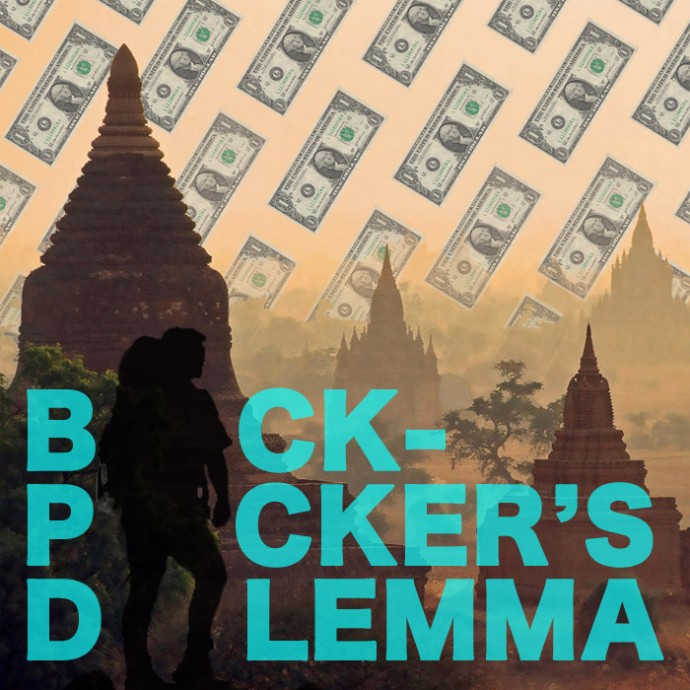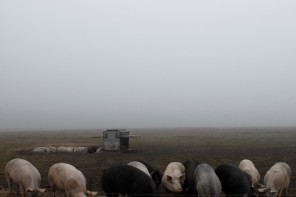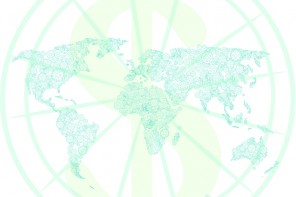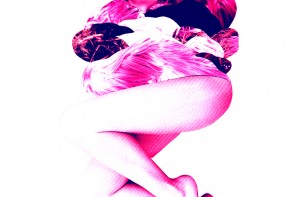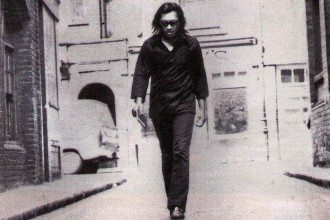Until recently, Myanmar was a country without internet, without mobile phones and without western corporatisation, but it was also a country without free speech or democracy or interaction with the outside world. Are we letting our eagerness to enjoy the good cloud our awareness of the bad?
It takes a very frugal man to make me feel like a lavish spender, but in the Myanmar Visa Office in Silom I met Jasper. Dried out and dreary from the Bangkok sun and Singhas we compared our applications and reassured ourselves that our forms and photocopies were fit for scrutiny. It was not until two mornings later in the hallway of my Yangon hotel that I heard his familiar Dutch voice again, haggling a dollar off a nine-dollar-bunk.
It turned out the he’d miscalculated his time allowance and had given himself twenty-seven days instead of the maximum twenty-eight. It was an oversight that I soon learnt was highly uncharacteristic of the guy as he grilled me on the state of the exchange rate for the US dollar. I told him that it wasn’t worth dwelling on the negligible difference between 890 kyat and 900 kyat: ‘what’s a dollar out of two hundred?’ He turned his nose up at this.
The fluctuating rate of the currency is just one of the quirks of Myanmar that makes going there so much fun. Upon arrival you’ll probably face the mysteries of the ATMs and the bank and black market exchange rates yourself. Such is the rapidity of development and progression in Myanmar the travel guides struggle to keep up. No amount of reading could have told me that at the end of a twenty hour boat odyssey to Katha I’d face the ticket booth operative who wouldn’t sell Bhamo tickets to foreigners (the other guy would, apparently) and so I would need to jump on a night train back to Mandalay.
The church bench seats, swaying carriages and warped tracks in Myanmar wouldn’t feel so out of place in Thorpe Park and its things like this that contribute to Myanmar’s reputation as a wonderful, difficult country to travel in and it’s usually assumed that if you’re willing to go there you’ll be happy to part with a bit of comfort. But interestingly, unlike other countries where you might be obliged to rough it (India, for example), Myanmar is seen as a country where it is widely accepted to be wrong to travel in any other way. Put simply, spend more and put more money in the pockets of corrupt officials and government cronies, spend less and still put money in the wrong pockets but leave money where it matters; in the hands of the long suffering families and workers of Myanmar. It was a black and white view that I’d been conditioned to but later felt persuaded to revise.
Myanmar, the last frontier of Southeast Asia
Over breakfast and a day’s walking around the former British capital, Jasper and I talked about our respective roads to Myanmar (Indonesia had wet his appetite and India, mine), and I found myself warming to his observations and travel style. He is what I would call an ‘organic traveller,’ favouring local buses, street food and stocking up on water at what was seemingly the only store in the city to sell it at 200 kyat-a-bottle. But aside from being cheapskates, we had other things in common; namely a long-borne determination to get to Myanmar but also, more unnervingly, a prominent feeling of selfishness for actually having gone through with it.
A month in Myanmar is a chance to feel like you’re tramping new ground, to go and see this ‘time-frozen’ country before it finds itself completely besotted with tourism. You can soak up the wide-eyed stares and the giggling greetings on the banks of Bhamo and take photos of dusty kids astride muscled oxes in Hsipaw but you do so knowing that a large part of the attraction of it is that others haven’t done it yet.
I began to wonder whether we’d succumbed to the post-boycott calls of now being ‘the time to go!’ or had we jumped at the chance to ‘see what Thailand was like thirty years ago.’ There’s nothing wrong with any of that you might say and of course discovery is a wonderful factor of any trip abroad but I doubt many destinations throw up the amount of ‘should I, shouldn’t I?’ wrangling that Myanmar does before one can touch down in Yangon, guilt free.
I’d read widely about the history, politics and religion of the country and had entered Myanmar convinced that mine would be a positive presence, a worthy footprint, but that’s not to say that I didn’t go on to question the legitimacy and benevolence of my presence during the month that I was there. Were we overlooking civil war, human rights violations and a military junta whose grip, though loosened is still wrapped around the tourism industry? Could we really nominate ourselves as the kind of interactive, investigative and money-wise visitors that Aung San Suu Kyi welcomed when tentatively raising the boycott wire to ‘the right kind of tourist’?
At first I had no reason to believe that I wouldn’t be that ‘right kind of tourist.’ Intending to track down family run hotels, eat on the street and spend my time writing about the country and talking to its people, I sought justification in the ‘don’t burn down the barn to kill the mice’ line of thought. I knew that spending money in Myanmar would unfortunately supplement military moguls who remain empowered but I also knew that positive, investigative travel can do much to enrich the lives of everyday people. I understood why the NLD and burmacampaign.org were so cautious with their encouragement- why open the floodgates to hordes of socks-and-sandled Europeans who’ll gawp through telescopic lenses at the spires, lakes and boulders that the government employed guides point to from the windows of the government owned buses?
Backpack good, suitcase bad?
The convenient polarisation of this view soon became very clear to me. I spent a day talking to trekking guides who plied their trade on the dusty trails between Kalaw and Inle Lake. Some were friendlier than others; some were more competitive than others; one went to great lengths to tell me about how a rival had close connections to the government and thus paid reduced tax rates. He told me the names of hotels who laundered money for the opium trade and of another that was a front for prostitution. Of course it’s normal to assume that this is all part of business. Slander- an ugly bi-product of a flourishing tourist trade, but nonetheless, the bad guys don’t always dress like the bad guys and I realised the futility of going in with an attitude of only employing those who seem honest and legitimate. The truth is you just don’t know.*
And whilst the bad guys don’t always dress like the bad guys, the good guys don’t always dress like the good guys. I hate to stereotype or be snobby about travel habits but when Jasper, a brave eighteen-year-old with a budget of five hundred dollars and a bag full of political books expressed his dismay about being labelled a ‘backpacker,’ it made me listen. ‘Backpacker’ is a term you associate with economical travel and, you would hope, a desire to embrace the local life they encounter. He told me that in his experience he’d found that for many the only time the pack spends on back is on the short journey from the hotel to the hotel-booked minibus. He thought they often displayed little or no ethical awareness, or at least not when it impacted on the enjoyment of their holiday.
Now none of this is to say that people should be dissuaded from visiting Myanmar. I often hear travellers telling you the best thing about a country they’ve just visited is its people but in Myanmar I really feel that is the case. It’s not to say that the people in India or Cambodia weren’t wonderful, they were. And it’s not to say that the scenery and sights in Myanmar aren’t spectacular, they really are, but it’s testament to how welcoming the people of Myanmar are that you come away feeling so fond. You’ll be hard-pressed to find a person in Myanmar who is not delighted to see you wandering the streets of their village or spending a few hours speaking English with his children, and likewise travel experiences like playing cane ball with monks in Pakokku are as good as they get and, truthfully, that counts for a lot. But with this said, I do feel like the travel light has gone from amber to green a little too soon. Of course we’re still strongly discouraged from booking tours and so we should be, but I do feel that the demonization of tour groups has been taken as justification for backpacking and that may have come a little too soon. I’ve tried it the other way skipping fees to Bagan, Inle and Shwedagon, but I’ve ultimately come away feeling that even the most vigilant visitor will come away feeling a little more exploitative than they would have hoped.
As tourists we’d all probably prefer to see the tribes following the cattle and plough than following the tour bus full of fresh arrivals, but the people of Myanmar deserve the opportunity to prosper just as their Thai, Laotian, Indian and Cambodian neighbours have. Conscientious travel in Myanmar is still paramount and contrary to certain experiences I’ve had, it is still possible a large percentage of the time. But with attitudes beginning to relax and tourism set to boom it’s important to remember that duty free holidays in Myanmar are still a way off.
*(On a side note: I fear that Kalaw could soon mimic Jaisalmer, the camel trekking base of India. A beautiful city tainted by greedy hotels who coax travellers in with slashed room prices that rise along with the frequency of power-cuts, water shortages and cold stares when the hosts gather their guests have favoured competitor’s service.)

